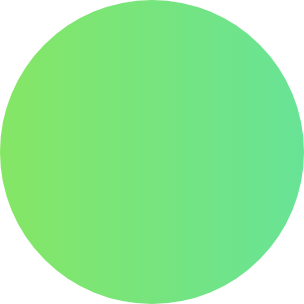Acupuncture
Acupuncture is a cornerstone of Traditional Chinese Medicine, the oldest, literate, and continuously practiced form of medicine in the history of the world. By now, most people have an idea of what an acupuncture treatment entails. Fine needles are inserted at strategic points on the body known as acupoints. A licensed practitioner typically uses ten to thirty needles, in strategically chosen, precise locations, depending on the goal of the treatment. Following the insertions, which is usually quite painless, the patient will relax for several minutes while the needles do their work. A sense of deep relaxation is often achieved and the overall experience is quite enjoyable. A series of treatments is typically prescribed as acupuncture is a therapy and the treatments build on each other. Depending on the condition being treated, treatments are scheduled once to twice per week initially with a decreasing frequency over time. Acupuncture treatments are often supported with Chinese herbs which are also strategically chosen for the desired effects on your body.
How Does Acupuncture Work?
By strategically placing needles in specific locations and combinations of locations, the free flow of vital substances is restored. The result of this is that pain is relieved and normal function is supported through the restoration of balance. An axiom in Chinese Medicine is that “if there is pain there is not free flow, and if there were free flow, there would not be pain.” Thus when someone is treated for pain, the goal is to create flow which is done by the removal of blockages. Blockage comes in many forms not the least of which is inflammation which science has shown to be reduced by acupuncture.
In some areas of our body we don’t have many pain receptors so we may have blockages and not feel pain. This is true for many of our organs. We may not feel pain in a particular organ, but we may know that it is not functioning well. When we open flows to an organ that is not functioning well, the function improves as the organ gets a better supply of the vital nutrients and healing substances it needs. The increase in function creates greater balance. When organs balance, systems balance, the person is balanced and overall health is improved.
In Chinese Medicine, each organ system has an emotion that it supports. If the organ is not balanced, it will tend to manifest in the emotions and likewise, excessive emotion will harm an organ over time. Therefore, acupuncture can be used to help with emotional stability via balancing organ function.
Conditions Acupuncture Can Address
Acupuncture has a wide variety of applications, including those related to the eyes, nose, throat, neurological system, digestion, emotional well-being, mental health, musculoskeletal system, respiration, reproductive health, and more.
Some of the most common conditions acupuncture can address, either alone or in combination with other health management routines, include the following:

Pain

Infertility

Addiction

Sinusitis

Headaches

Bladder Dysfunction

Sciatica

Back Pain

Irritable Bowel Syndrome

Menstrual Pain

Nausea and Vomiting

Anxiety

Insomnia
This is by no means an exhaustive list of conditions that stand to benefit from the application of acupuncture therapy sessions. The conditions mentioned above illustrate the wide variety of health benefits acupuncture has the potential to provide.

Acupuncture Benefits
Along with combating the effects of various illnesses and health conditions, acupuncture can also improve a patient’s overall health. Acupuncture sessions lead to:

Anti-Iinflammatory Responses

Autoimmune Responses

Improved Blood Circulation

Endocrine System (hormone) Balance

Increased Serotonin and Dopamine Levels
Does Acupuncture Hurt?
In China, acupuncture is considered “bu tong” literally translating as “no pain.” For most people, this is the case. The needles are very thin and the acupuncturists are very skilled at handling the needles. Every once in a while you may experience an unexpected sensation during an insertion. These can include a lingering dull ache (which is actually therapeutic), mild burning sensation or a “shooting” sensation. These are usually temporary and mild.
A Word about “Dry Needling”
With the increase in the popularity of acupuncture in recent years, other health professionals have become interested in the therapeutic use of needles. The concept of “Dry Needling” evolved in the pain management world from doing “trigger point” injections with medications, to doing them with saline solution to injecting nothing, thus the term “dry.”
Those who do “dry needling” will tell you that “it is not acupuncture” despite the fact that they use acupuncture needles and the original training was done by acupuncturists. The reason that “it is not acupuncture” is not because the procedure is different, it is because they do not hold an acupuncture license. If a licensed acupuncturist performs the exact same treatment, it IS acupuncture. In reality, “Dry Needling” is a subset of acupuncture, done by practitioners who were “certified” for attending a seminar, usually a weekend seminar.
At East Wind we treat over one hundred patients a week. Our acupuncturists hold Master’s Degrees with over 3000 hours of training including 3 semesters of “needle technique” (where we practice on each other) as well as a semester of observation in the student clinic before being allowed to actually perform acupuncture on a patient. Each of our acupuncturists have performed hundreds of thousands of needle insertions and have participated in hundreds of hours of continuing education (15 hours per year with over 35 years of combined experience). You are in the best hands at East Wind.
See What Our Patients Are Saying
Your New Life Starts Now
Book your Discovery Consultation!
Book your appointment - call us at (920) 997-0511
